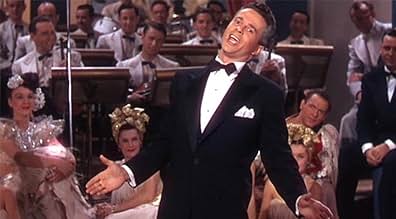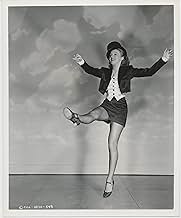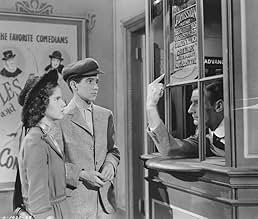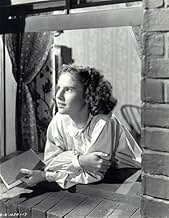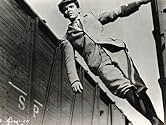Ajouter une intrigue dans votre langueThis movie shows the idealized career of the singer Al Jolson, a little Jewish boy who goes against the will of his father in order to be in showbiz. He becomes a star, falls in love with a ... Tout lireThis movie shows the idealized career of the singer Al Jolson, a little Jewish boy who goes against the will of his father in order to be in showbiz. He becomes a star, falls in love with a non-Jewish dancer, and marries her. In the end he chooses success on the stage.This movie shows the idealized career of the singer Al Jolson, a little Jewish boy who goes against the will of his father in order to be in showbiz. He becomes a star, falls in love with a non-Jewish dancer, and marries her. In the end he chooses success on the stage.
- Réalisation
- Scénario
- Casting principal
- Récompensé par 2 Oscars
- 5 victoires et 5 nominations au total
- Church Choir
- (as Mitchell 'Boychoir')
- Audience Member
- (non crédité)
- Dancer
- (non crédité)
- Wardrobe Woman
- (non crédité)
- Audience Member
- (non crédité)
- Audience Member
- (non crédité)
- Audience Member
- (non crédité)
Avis à la une
Jolson's life story has been sanitized here to keep in line with the values of the post-war motion picture production code, right down to extending the life of Jolson's mother an extra forty years - she died when Al was ten. Also, the movie has Jolson playing the career-absorbed bachelor until he meets his wife Julie Benson (code for Ruby Keeler) when he is in his forties. Yes, Al was career-absorbed, but he still went through two marriages and two divorces before he ever got to Ruby Keeler.
Two very interesting points of the film involve the insertion of the fictional character Steve Martin that allegedly got Al into show business and also the choice of director. The first interesting point is that fictional character Steve Martin is played by William Demarest, who actually had a bit part in 1927's "The Jazz Singer". You'll see him sharing a plate of eggs with Al at Coffee Dan's just minutes before Al bursts into song in "Toot Toot Tootsie". Demarest was a bit player over at Warner's during the beginning of his career. He had no real association with Al Jolson that I know of. The second interesting point is the choice of director - Alfred E. Green. Mr. Green was among that group of directors that ground out the early talkies for Warner Bros during the time that Jolson was a star at that studio. However, he never directed any of the eight motion pictures that Al Jolson starred in for Warners. There were four directors that Jolson worked with over at Warner Brothers that were still alive when this film was made, but for some reason none of them got the job.
At any rate, the movie is very entertaining and well-paced with great renditions of Jolson's acts and songs. For the unvarnished truth about Jolson's life, try to find a copy of the documentary "The Real Al Jolson Story" made in 1986 and originally telecast by Bravo, back when they really were dedicated to the performing arts and before they became so concerned with Top Chefs and Flipping Out - you know, the same kind of stuff you can find on 50 other channels.
My father had me watch this movie as a kid on Million Dollar Movie and I was taken by the personality, drive, energy, and talent of this great entertainer. Hearing about, and seeing, silent movies made me all the more in awe of the talent Jolson must have been since Hollywood banked it's future on talkies with "The Jazz Singer".
Besides Parks excellent performances are also put in by William Demerest, who many of us remember as Uncle Charlie in My Three Sons, Evelyn Keyes as Julie Benson (Jolson's first wife) and the rest of the cast. The 1949 making of Jolson Sings Again is also worthwhile, if for no other reason than watching Parks do the masterful lip-sync and the incredible vocals of Jolson.
Le saviez-vous
- GaffesLe chanteur de jazz (1927) had its world premiere at the Warner Theatre in New York, not the Winter Garden as depicted in the film (as "The Jolson Story" was a Columbia picture, the change is understandable).
- ConnexionsFeatured in The Soundman (1950)
- Bandes originalesLet Me Sing and I'm Happy
(uncredited)
Written by Irving Berlin
Sung by Al Jolson over opening credits
Originally from Mammy (1930)
Meilleurs choix
- How long is The Jolson Story?Alimenté par Alexa
Détails
Box-office
- Budget
- 2 800 000 $US (estimé)
- Durée2 heures 8 minutes
- Rapport de forme
- 1.37 : 1
Contribuer à cette page


